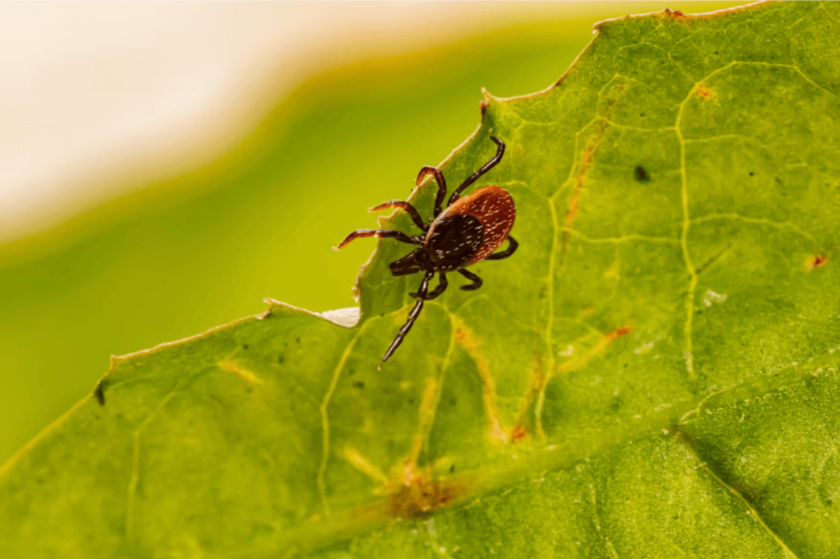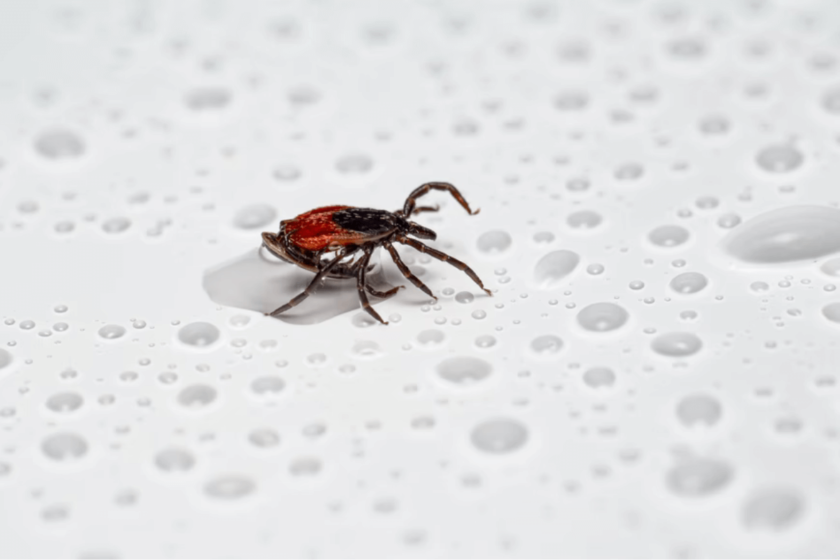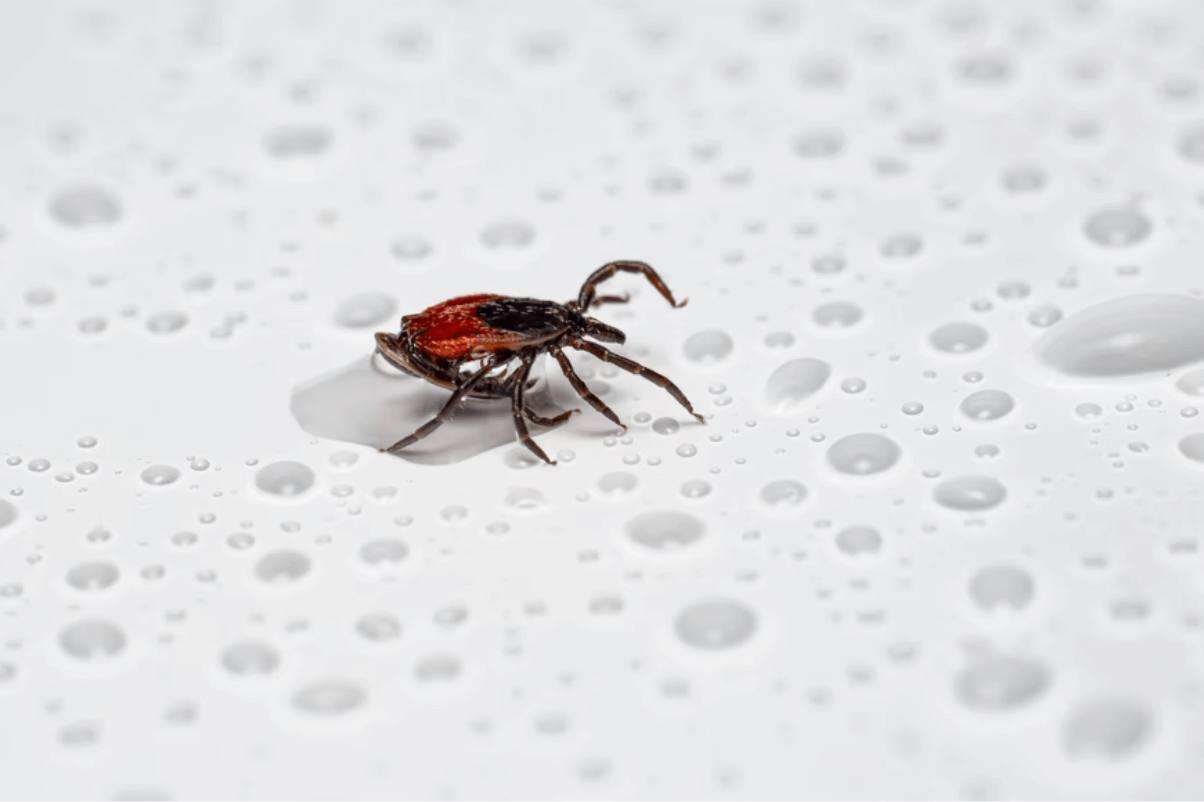Ticks are blood-sucking parasites that are found all over the world. They have a variety of hosts, like dogs and other animals. Humans can be on their menu if the host is sick or has an open cut in his/her skin. Ticks come in many different varieties and most people aren’t even aware that they have one attached to their body until it is far too late. Many types of ticks simply crawl onto your clothes and onto your exposed skin while you’re walking in tall grasses. Once they feel safe, they burrow into your flesh without any pain, leaving behind an itchy bump for days or weeks until it heals. The following tips will help you learn how to prevent a tick infestation and how to deal with one if preventive methods fail.

Use A Tick Repellant
One of the best ways to prevent a tick infestation is by using a proven tick repellant. Most tick repellants work by using the chemical DEET. DEET, chemical name, N, N-diethyl-meta-toluamide, is a chemical with a strong smell that you can find in a variety of insect repellants that can help prevent ticks from latching onto your skin. However, more and more experts recommend switching to using natural tick repellants because studies show that DEET can be harmful. Here are the ways in which DEET is bad:
To Humans
DEET is a neurotoxin that can cause seizures and even paralysis. It can also lead to certain birth defects in pregnant women. For children, it can cause severe developmental issues.
To Bees and Birds
Bees and birds, like many animals, rely on their sense of smell to find their food and navigate through their world. Deet is a chemical that masks smell which confuses the bees and makes it difficult for them to find flowers for pollination. This makes using bee safe tick control essential in order to protect the bee population. The same can be said about DEET towards birds – it interferes with their ability to migrate properly, causing them not only a lot of unnecessary stress but also compromising their survival potential.
To Pets
Interestingly enough, not so many pet owners realize that applying DEET to their pets can have the same negative effects as it does on humans. The reason for this is because DEET can actually build up in your pet’s body over time and cause serious health issues. What’s more, the number of tick bites on dogs is double what it is on humans, making DEET even more detrimental to dogs.
Keep Your Clothes Clean
Another tip that can help you prevent a tick infestation is by keeping your clothes clean. Most people don’t think about ticks crawling onto their clothing to get to their skin, but the fact of the matter is that ticks are not picky parasites and will do whatever it takes to find blood. If you wear dirty clothes, they’re more likely to be able to crawl onto your skin without much trouble because they’ll feel comfortable in your clothing’s folds – just like other bugs.
Wash your clothing with a laundry detergent. This will help get rid of the ticks before they’re able to latch onto your body and spread disease through bites. Remember – even if you don’t detect any ticks present on your clothing after washing them, they can still be there! Ticks are known for holding onto things tightly, so make sure to put everything through the dryer as well to ensure that all of them have been killed.
It’s also important that you keep clothes in their plastic bags when not wearing them. This will help ensure that ticks don’t latch on when they’re in storage.
Keep Your House Clean
A major step you can take to help prevent a tick infestation is by keeping your house clean. Here’s how:
Keep Your Yard Clear of Fallen Leaves
Fallen leaves are a great place for ticks to live because the surface is usually damp and lacks direct sunlight. They can easily hide underneath without being noticed by humans or other predators that could eat them – making fallen leaves a perfect breeding ground not only for ticks but also other parasites like mosquitos. Make sure you sweep up any leaves whenever possible and dispose of them properly in order to prevent ticks from infesting your yard.
Don’t Let Clutter Build Up
It’s not just your yard, but your rooms as well. Clutter is a great place for ticks to thrive because it provides them with many different places to hide which will help them avoid being found by you. Make sure to keep everything neat and organized – this includes closets, bookcases, beds, couches, even the backyard.
Mow Your Lawn
Keeping your lawn mowed is another tip that can help prevent ticks from infesting your house. Ticks often reside in tall grasses where they are safe from the sun and other parasites.
If you don’t have time to mow the lawn yourself, consider paying someone else to do so or get rid of your lawn altogether. No matter how many ticks are on your lawn, they won’t be there once it’s gone for good!
If prevention fails, here’s how to deal with ticks.
How To Remove Ticks
Ticks are tenacious little parasites so they should be removed without any hesitation – but how? Here are some tips that work well:
– Use fine pointed tweezers to grab as close to the skin as possible. Pull up steadily but slowly because pulling too fast or using brute force can cause the tick to burst and release toxins.
– Clean off the tweezers with alcohol or soap and water before using them on another person or pet in order to avoid transferring any bacteria. If you don’t have access to either, make do by wiping them off with a clean cloth or paper towel.
– Avoid smothering the tick as much as possible because doing so opens it up for infection. The less you can touch it, the better!
– Store your tick(s) in an airtight container like those used for storing food to prevent it from drying out and dying – this will help identify what type of tick it is later on if need be. Remember: even dead ticks pose a threat so handle them with care.
– Monitor yourself and/or your pets for any signs of illness, such as fever or rashes. If you notice anything at all that seems suspicious, contact a doctor immediately!

To prevent a tick infestation, wash your clothes with a laundry detergent, keep your house, yard and rooms clean. If it’s too late use fine pointed tweezers to grab ticks closest to the skin, pull slowly up – this will prevent a tick from breaking off in the body – but make sure not to touch it too much by avoiding smothering the tick. Store the ticks in an airtight container after removing them with tweezers. Monitor yourself or your pet for any signs of illness. If necessary contact a doctor.

